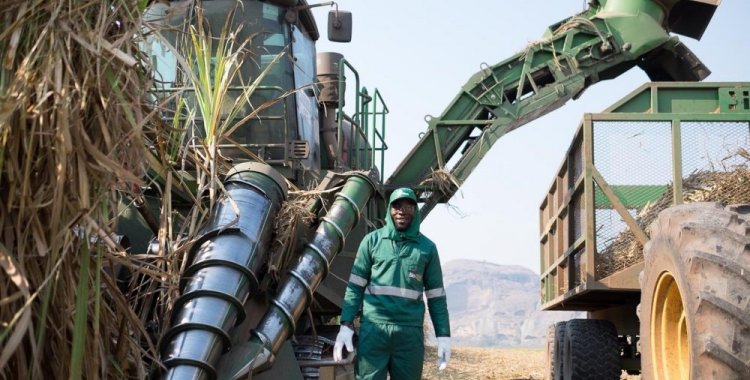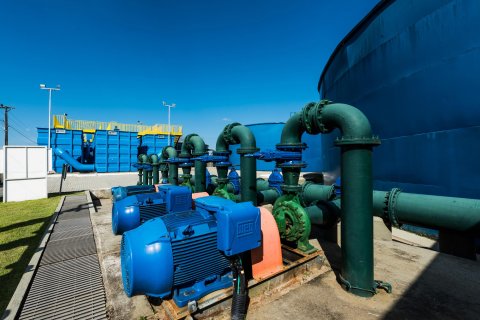Biocom, Companhia de Bioenergia de Angola, produces sugar, ethanol and electricity from sugar cane and this Wednesday launched its 2022 crop in Malanje, marking the opening of the agricultural year.
Angola currently consumes around 300,000 tonnes of sugar/year, of which around 40 percent is supplied by Biocom, from its installation in Cacuso, in Malanje province, where it hopes to reach 128,000 tonnes this year.
The objective is to increase production to the limit of the factory's capacity – 250,000 tonnes – which could happen in three or four years, according to the deputy general director, Luís Bagorro.
In the presentation of the harvest (the eighth), the official also spoke about the difficulties of the last year, due to the international situation, which is making equipment, fertilisers, fertilizers and transport more expensive, in addition to the logistical difficulties of transport due to the poor state of the roads. .
Asked by Lusa about whether these costs will be reflected in the price of sugar, Luís Bagorro indicated that the company is working to increase productivity and "fighting" so that prices do not increase.
"What we have to do is fight for productivity gains, everything is programmed in such a way that we do not increase the [price of] sugar. Sugar is a staple food product, we work in coordination with the government program and we have bet on the improving processes and increasing productivity to see if we can maintain or even lower prices.
For the increase in production this year, the expansion of the planting area was also decisive.
Until last year, Biocom had 26,000 hectares planted, of which 22,000 were used (the remaining area was for replanting), while this year there are 30,000 hectares planted from which 26,000 hectares of cane will be harvested, said Luís Bagorro, without specifying investment values.
The same official stressed that the area will continue to increase in the coming years until the project reaches maturity (250,000 tonnes), which will almost satisfy the Angolans' sugar consumption, if it remains close to the current one.
It takes a ton of cane to produce 104 kilos of sugar, the entire process taking 48 hours between harvest and the final product.
Biocom produces entirely for domestic consumption and since 2017 it has also stopped importing this product.
Ethanol and electricity are also fully absorbed by the internal market.
In 2022, the company expects to produce 18,000 cubic meters of neutral ethanol and 64,000 megawatts of electricity from biomass (sugarcane) that can supply electricity to around 80,000 inhabitants, according to the director of agro-industrial operations, Fernanda. Andrade.
Ethanol is used in the beverage, cosmetics, pharmaceutical, hygiene and cleaning industries, with more than half of the consumption needs in Angola guaranteed by Biocom.
Electricity is consumed in the industrial facility itself, the surplus being injected into the public network. The value was not revealed by Biocom officials.
The company, owned by Brazilian Odebrecht (40 percent) and state oil company Sonangol, until last year had Cochan, linked to Generals Dino and Kopelipa, 40 percent of which are currently held by the Instituto de Gestão de Ativos, in its shareholder composition. and State Shares (IGAPE) within the scope of the return of assets constituted with State funds.
Asked about the destination to be given to this participation, Luís Bagorro said that such a decision is up to IGAPE.
Biocom currently employs around 3,700 workers and is located in the agro-industrial hub of Capanda, in an area of over 81,000 hectares, of which 70,000 are arable and the rest are intended for the preservation of vegetation.
It has an installed capacity to produce 2.2 million tons of sugarcane in an area of 38,000 hectares, 250,000 tons of white crystal sugar, 37,000 cubic meters of neutral alcohol and to supply 136,000 megawatts of energy.







